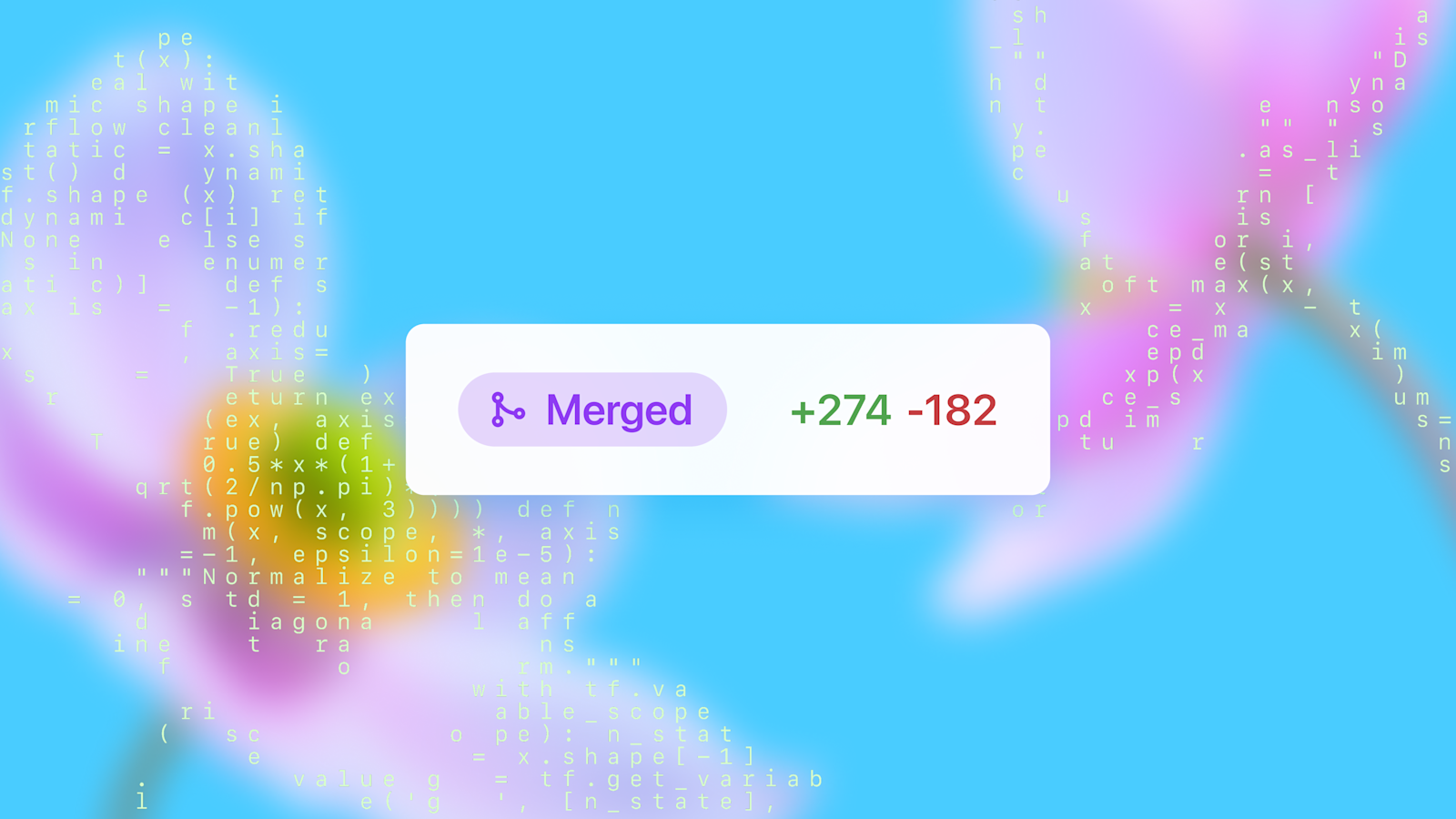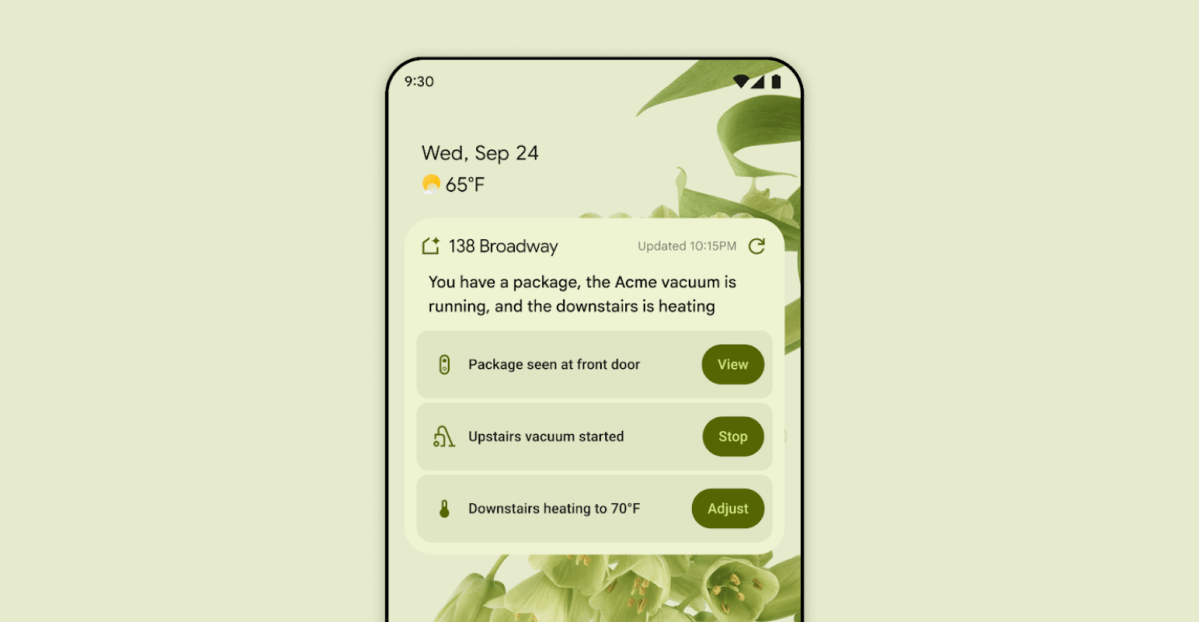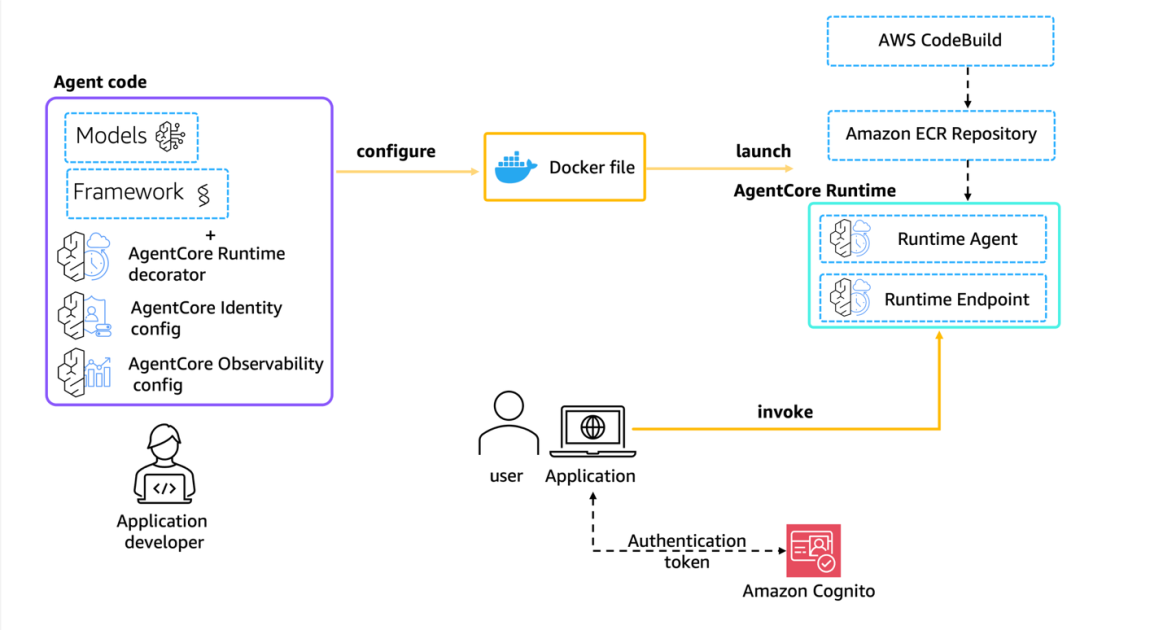
OpenAI introduces GPT-5-Codex: faster, more reliable coding assistant with advanced code reviews
Sources: https://openai.com/index/introducing-upgrades-to-codex, OpenAI
TL;DR
- GPT‑5‑Codex is a version of GPT‑5 optimized for agentic coding in Codex, designed for quick interactive sessions and long, complex tasks.
- It includes enhanced code review capabilities that can identify critical bugs before they ship.
- Codex now works everywhere you develop: terminal, IDE, web, GitHub, and the ChatGPT iOS app, with cloud and local task support via Codex CLI and the IDE extension.
- Performance and workflow improvements include faster task completion through caching, automatic environment setup, image sharing in the CLI, and improved tool use for external integrations.
- Security is prioritized: Codex runs in a sandbox by default, with configurable privacy and network controls across cloud and local environments.
Context and background
Codex has evolved to become a more effective coding collaborator across multiple environments. Earlier steps included the launch of Codex CLI in April and Codex web in May, followed by unifying Codex into a single product experience connected by a user’s ChatGPT account two weeks ago. This unification enables seamless movement of work between local environments and the cloud without losing context, and expands Codex’s reach to terminals, IDEs, the web, GitHub, and even the ChatGPT iOS app. Codex is included with ChatGPT Plus, Pro, Business, Edu, and Enterprise plans. OpenAI
What’s new
OpenAI introduces GPT‑5‑Codex, a version of GPT‑5 further optimized for agentic software engineering in Codex. It is trained on complex, real‑world engineering tasks, including building full projects from scratch, adding features and tests, debugging, performing large‑scale refactors, and conducting code reviews. It is more steerable and adheres better to AGENTS.md instructions, producing higher‑quality code with less need for long setup prompts.
- It can power cloud tasks and code review by default and can be used for local tasks via Codex CLI and the IDE extension.
- It supports long-running independent work (tests show independence for more than 7 hours on large tasks) and remains snappy on small requests or during interactive chats.
- GPT‑5‑Codex has been validated for code reviews by navigating codebases, reasoning about dependencies, and running code and tests to validate behavior.
- In testing, it demonstrates improved accuracy in review comments and reduces the likelihood of incorrect or unimportant feedback.
- It supports visual input in the cloud (images or screenshots) and can display progress screenshots of its work.
- The model is purpose-built for Codex CLI, the Codex IDE extension, the Codex cloud environment, and GitHub, and it also supports versatile tool use. Unlike GPT‑5, it is recommended specifically for agentic coding tasks in Codex or Codex‑like environments.
| Feature | Details |
|---|---|
| Availability | Default for cloud tasks and code review; usable for local tasks via Codex CLI and IDE extension |
| Training emphasis | Real-world software engineering tasks, including full projects, features, tests, debugging, and large refactors |
| Strengths | Faster on short prompts, capable of long independent execution, improved code reviews, better alignment with task goals |
| Security | Sandboxed by default; network access configurable; commands require permission; cloud network restrictions |
| Tools and environments | Codex CLI, Codex IDE extension, cloud environment, GitHub integration, supports images in CLI and progress tracking |
- SWE-bench Verified: the model now reports on all 500 SWE-bench tasks and includes refactoring tasks across Python, Go, and OCaml. An example PR in Gitea demonstrates large-scale changes.
- It adapts its thinking time based on task complexity and balances interactive pairing with persistent, long-running execution. During testing, the model handled large refactors and maintained momentum over hours. OpenAI
Why it matters (impact for developers/enterprises)
- A faster, more reliable teammate reduces turnaround time for both quick questions and long-running engineering tasks.
- Advanced code reviews can catch critical flaws earlier, reducing reviewer load and increasing confidence before shipping.
- The unified Codex experience, connected through a ChatGPT account, enables seamless context retention when moving work between the cloud and local environments. This helps teams maintain continuity across tools and locations.
- Cross‑environment support means developers can work in the terminal, IDEs, web, GitHub, and mobile, aligning with modern developer workflows.
- Security controls, sandboxing, and configurable network access help protect code and data while enabling productive automation in trusted environments. OpenAI
Technical details or Implementation
- Codex CLI has been rebuilt around agentic coding workflows to make the agent more capable and reliable. It now supports attaching and sharing images (screenshots, wireframes, diagrams) in the CLI to build shared context and clarify design decisions. A to-do list tracks progress on complex tasks, and web search and MCP enable connecting to external systems, with more accurate tool use overall. The terminal UI now presents tool calls and diffs more clearly, and approval modes are simplified to read-only, auto, and full access levels. Conversation state can be compacted to make long sessions easier to manage.
- The IDE extension brings the Codex agent into VS Code, Cursor, and other forks, enabling you to preview local changes, edit code with Codex, and move work between the cloud and your local environment without leaving the editor. You can create cloud tasks, monitor in-progress work, and review completed tasks from within the IDE, including opening cloud tasks in the editor to maintain context. Quickstart guides explain how to maximize the IDE extension. OpenAI
- In the cloud, Codex can inspect images you provide as input, look at its own progress visually, and attach screenshots of the result to tasks and PRs. Cloud infrastructure improvements include caching containers to dramatically reduce median completion time for new tasks and follow-ups by 90%. Codex can automatically set up its own environment by scanning common setup scripts and running them, and can fetch dependencies at runtime when configured with internet access. Security settings are customizable to match risk tolerance; cloud network access can be restricted to trusted domains. In the CLI and IDE extensions, developers can approve commands to run with full access or permit web search and MCP connections, expanding capabilities while balancing risk. OpenAI
- Code review capabilities: Codex reviews PRs as they move from draft to ready, posts analysis on the PR, and can implement suggested edits if asked with a command like “@codex review.” The team uses Codex for a majority of PR reviews at OpenAI and highlights its role in accelerating shipping with greater confidence. Codex emphasizes protecting code and data from exfiltration, running in sandboxed environments by default, and asking for permission before potentially dangerous actions. OpenAI
Key takeaways
- GPT‑5‑Codex is tailored for agentic coding in Codex, delivering faster responses and robust long‑form task handling.
- It strengthens code review, navigation, and testing workflows to improve software quality and reduce manual review effort.
- Codex now offers a unified, cross‑environment experience connected by a ChatGPT account, enabling seamless movement between local and cloud work.
- Security and containment features, plus configurable network controls, help protect code and data while enabling automation.
- The Codex CLI and IDE extension team up to bring the cloud agent into your favorite development environments, with richer collaboration features like image sharing and to‑do tracking.
FAQ
- Q: What is GPT‑5‑Codex and how is it specialized for Codex? A: It is a version of GPT‑5 optimized for agentic software engineering tasks in Codex, trained on real-world coding work, and focused on interactive sessions as well as independent long-running tasks. OpenAI
- Q: Where can Codex be used with this upgrade? A: In cloud tasks and code reviews by default, with local task support via Codex CLI and the IDE extension, and across terminal, IDE, web, GitHub, and the ChatGPT iOS app. OpenAI
- Q: How does code review work with GPT‑5‑Codex? A: It navigates codebases, reasons about dependencies, runs code and tests to validate behavior, and can post analysis on PRs and implement edits when asked. OpenAI
- Q: What about security and sandboxing? A: Codex runs in a sandboxed environment by default with network access disabled; it can ask for permission before dangerous actions and can be restricted or expanded via configurable settings. OpenAI
- Q: What performance improvements are highlighted? A: Caching of containers reduces median task completion time by about 90%, and Codex can adapt its thinking time to task complexity while maintaining responsiveness on simpler requests. OpenAI
References
- OpenAI: Introducing upgrades to Codex — https://openai.com/index/introducing-upgrades-to-codex
More news
First look at the Google Home app powered by Gemini
The Verge reports Google is updating the Google Home app to bring Gemini features, including an Ask Home search bar, a redesigned UI, and Gemini-driven controls for the home.
OpenAI reportedly developing smart speaker, glasses, voice recorder, and pin with Jony Ive
OpenAI is reportedly exploring a family of AI devices with Apple's former design chief Jony Ive, including a screen-free smart speaker, smart glasses, a voice recorder, and a wearable pin, with release targeted for late 2026 or early 2027. The Information cites sources with direct knowledge.
Shadow Leak shows how ChatGPT agents can exfiltrate Gmail data via prompt injection
Security researchers demonstrated a prompt-injection attack called Shadow Leak that leveraged ChatGPT’s Deep Research to covertly extract data from a Gmail inbox. OpenAI patched the flaw; the case highlights risks of agentic AI.
Move AI agents from proof of concept to production with Amazon Bedrock AgentCore
A detailed look at how Amazon Bedrock AgentCore helps transition agent-based AI applications from experimental proof of concept to enterprise-grade production systems, preserving security, memory, observability, and scalable tool management.
Predict Extreme Weather in Minutes Without a Supercomputer: Huge Ensembles (HENS)
NVIDIA and Berkeley Lab unveil Huge Ensembles (HENS), an open-source AI tool that forecasts low-likelihood, high-impact weather events using 27,000 years of data, with ready-to-run options.
Scaleway Joins Hugging Face Inference Providers for Serverless, Low-Latency Inference
Scaleway is now a supported Inference Provider on the Hugging Face Hub, enabling serverless inference directly on model pages with JS and Python SDKs. Access popular open-weight models and enjoy scalable, low-latency AI workflows.





